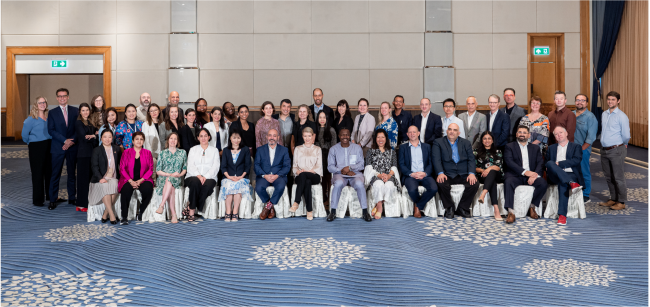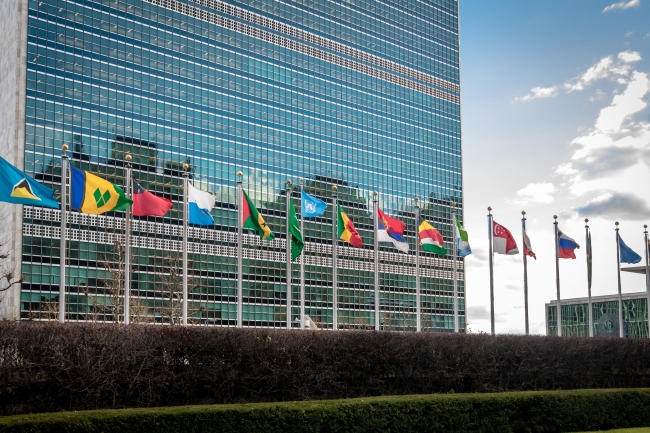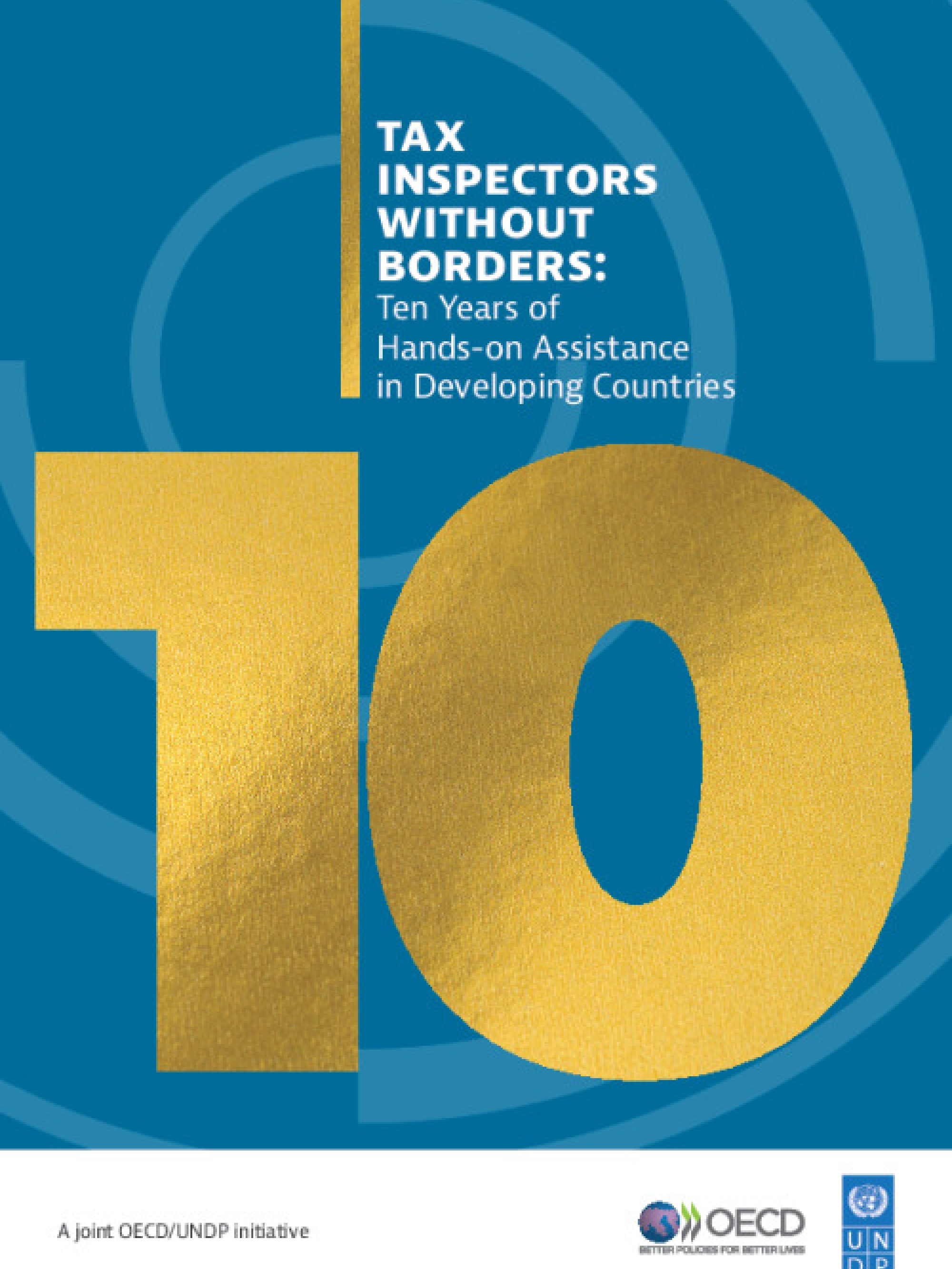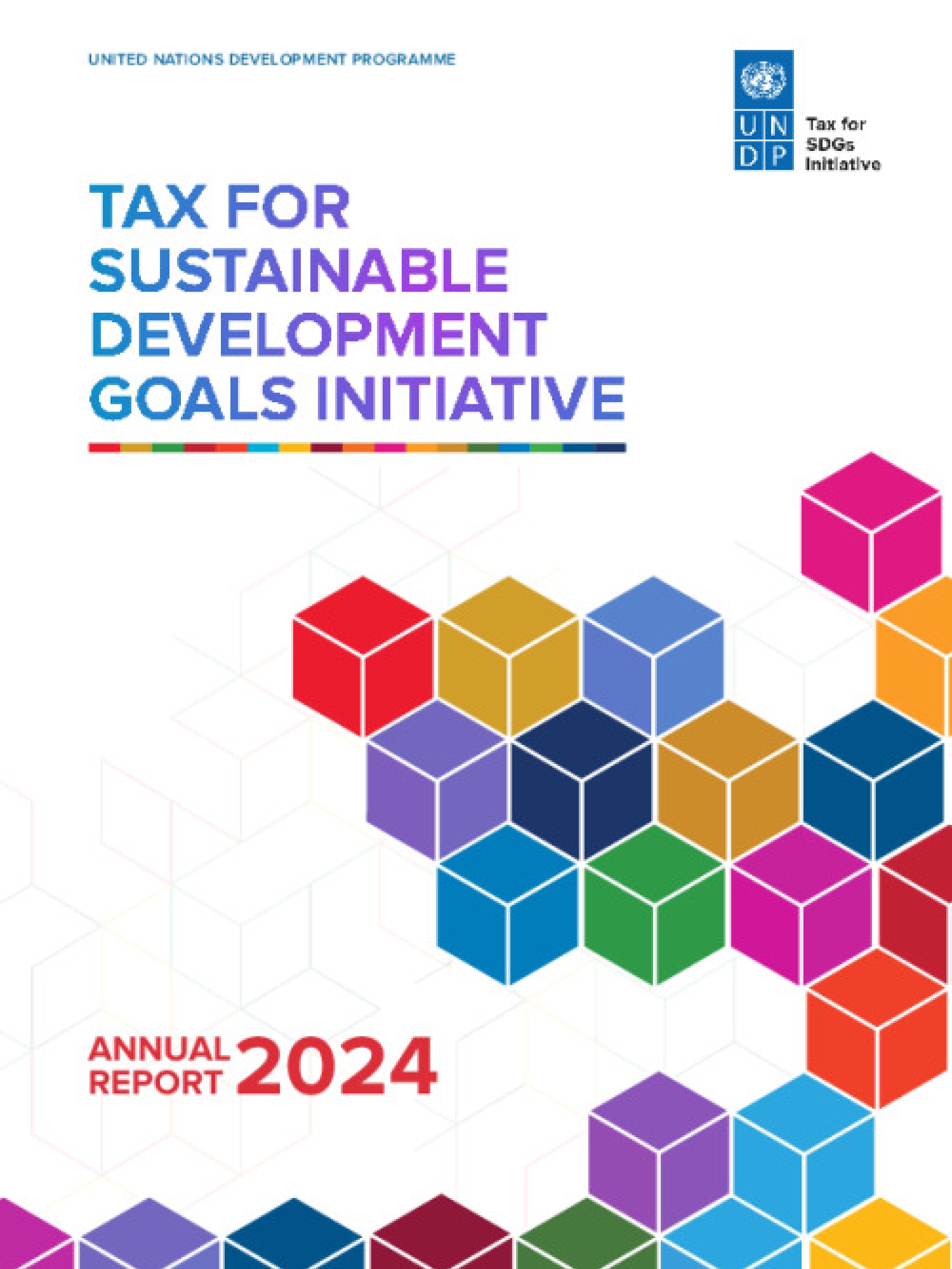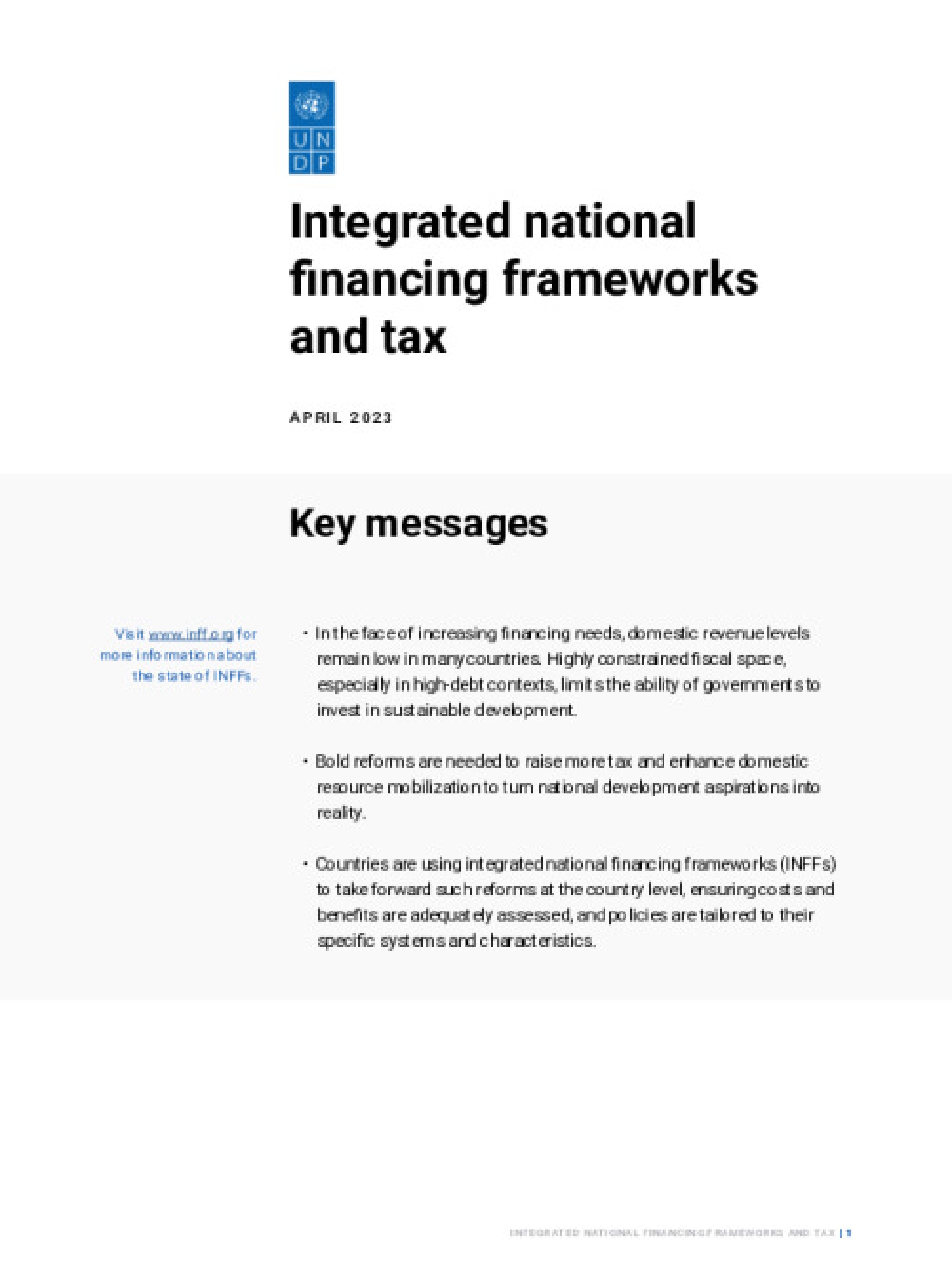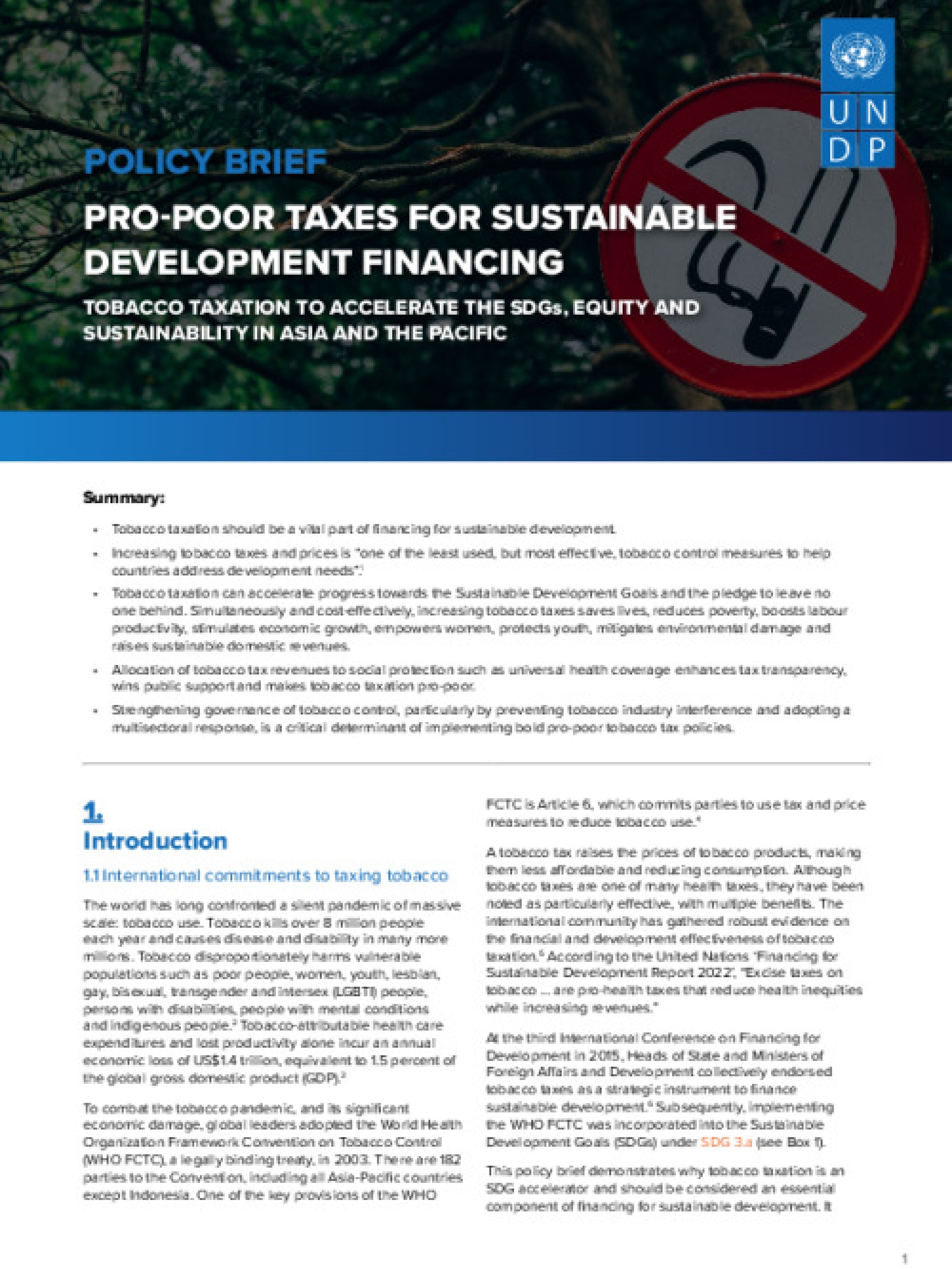Our Focus
Tax for SDGs
The Tax for Sustainable Development Goals Initiative, or Tax for SDGs, supports developing countries in increasing domestic resource mobilization and achieving the SDGs. Under the Initiative, taxation is considered both a tool for revenue collection and a policy instrument to encourage sustainable growth strategies and influence behaviour towards desired outcomes related to climate, nature, well-being, gender equality and governance.
Tax for SDGs helps countries identify, understand, and leverage the role of taxation in achieving the 2030 Agenda. The initiative focuses on the following key areas:
- National tax administrations and other relevant agencies increased capacity to tackle tax avoidance, tax evasion, and illicit financial flows.
- Governments increasingly align tax and fiscal policies with the SDGs.
- Evidence and perspectives from developing countries are incorporated into regional and international discussions on taxation.
As part of its work in taxation, UNDP, in partnership with the OECD, collaborates on the Tax Inspectors Without Borders (TIWB) Initiative, which has helped raise over US$2 billion in additional tax revenue since 2015. TIWB currently operates 59 programs across Africa, Asia and the Pacific, Arab States, Europe and the CIS, and Latin America and the Caribbean.
Additionally, UNDP has developed a broader range of services under the Tax for SDGs Initiative, including the Draft SDG Taxation Framework Diagnostics (STF), which helps governments identify tax strategies that effectively contribute to achieving specific SDG targets.

